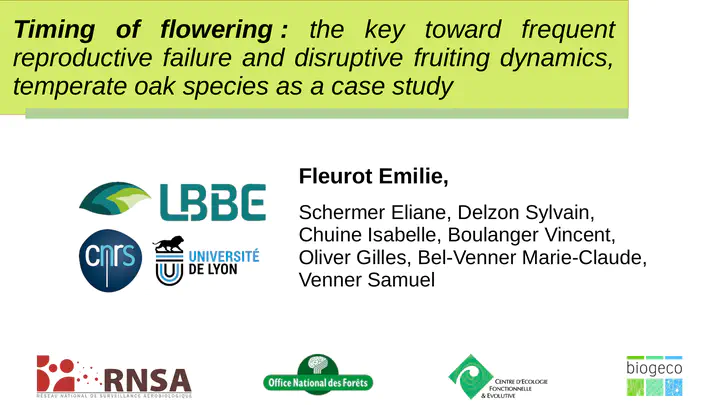Timing of flowering: the key toward frequent reproductive failure and disruptive fruiting dynamics: temperate oak species as a case study

Abstract
In many perennial wind-pollinated plants, the dynamics of seed production, commonly known to be highly fluctuating from year to year and synchronized among individuals within populations, dramatically affects forest regeneration and biodiversity. However, the proximate causes of such seeding dynamics, called masting, are still poorly understood, making any accurate forecasting virtually impossible in the context of climate change. We investigated the extent to which flowering phenology influences the fruiting dynamics of temperate oak trees and what consequences an evolutionary shifting flower phenology would have on oak masting. To this end we combined long-term surveys of weather data, airborne pollen amount and acorn production over large-scale field networks in a mechanistic modeling approach. From large field monitoring network, we showed empirically that temperate oak species release pollen earlier in the season than Mediterranean oak species. Such early flowering in temperate oak species results in pollen being often released during unfavorable weather conditions leading to frequent reproductive failure. Then, focusing on temperate oak species and using a mechanistic model we showed that postponing flowering in the season resulted in fruiting dynamics that fluctuate in a more deterministic manner. Our simulated results suggest therefore that the early flowering phenology observed might be adaptive by making mast-seeding years rare and unpredictable which would greatly help controlling the dynamics of seed consumers. Changes in pollen phenology due to climate change could therefore have a strong impact on fruiting dynamics and by cascade on entire forest ecosystems.